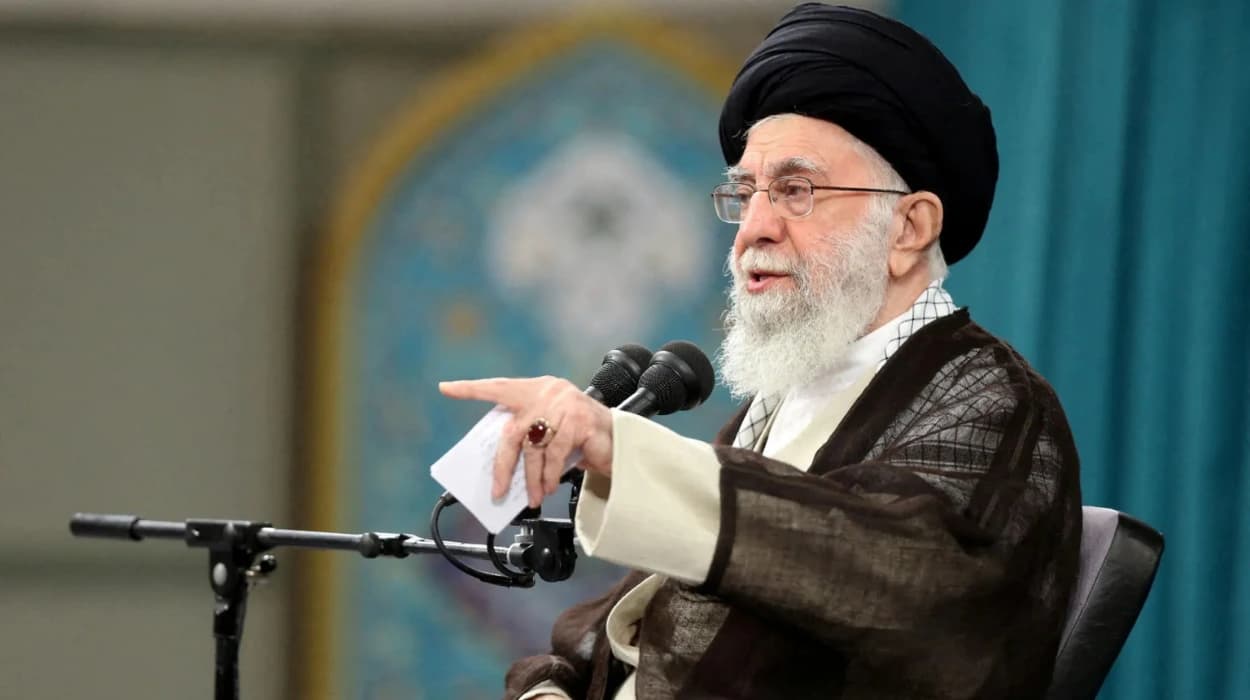Iran has called on Muslim nations worldwide to unite and
take decisive action to end what it describes as a "genocide" in Gaza
amid ongoing violence. Iranian authorities emphasise the urgent need for
solidarity and practical measures to halt alleged atrocities.
What is the context of Iran’s call for Muslim nations?
As reported by multiple media outlets, Iran has issued a
strong appeal to Muslim countries to intervene and stop the ongoing conflict
and loss of civilian lives in Gaza. Iranian officials have repeatedly condemned
the escalating violence in the region, labelling the situation a genocide
targeting Palestinians in Gaza. This call reflects Iran’s consistent stance on
supporting Palestinian rights and opposing Israeli military actions.
Who are the key Iranian voices behind this call?
The statements come from senior Iranian political and
religious leaders who hold significant influence over the country’s foreign
policy. Prominently, Iranian Supreme Leader Ayatollah Ali Khamenei has publicly
urged Muslims worldwide to stand against what he terms the "brutal
massacre" in Gaza. He characterized the conflict as an existential threat
to Palestinians that demands urgent and united action.
Additionally, Iranian Foreign Minister Hossein
Amir-Abdollahian has reinforced these calls at international forums, urging
Muslim nations to not only condemn the violence verbally but also to take
concrete measures, including diplomatic pressure and humanitarian assistance.
What action does Iran propose Muslim nations take?
According to Iranian officials quoted in various reports,
the recommended actions include political solidarity, economic sanctions
against Israel, increased humanitarian aid to the Gaza Strip, and efforts to
mobilize international institutions such as the United Nations to intervene
effectively.
Iran’s messaging is focused on a unified Muslim front,
leveraging the collective influence of the Organisation of Islamic Cooperation
(OIC) and other intergovernmental Muslim bodies to push for a cessation of
hostilities and an end to what they label the Gaza genocide.
How has the international community reacted to Iran’s calls?
The international community’s reaction has been mixed, given
the complex geopolitical interests in the region. While many Muslim-majority countries
express concern over the humanitarian situation in Gaza, responses vary in
terms of willingness to adopt Iran’s proposed stance, mainly due to differing
diplomatic relations with Israel and internal political calculations.
Western nations and some regional powers have urged
de-escalation and calls for peace talks, often cautioning against language that
could exacerbate tensions or polarise the conflict further. Meanwhile, Iran’s
statements have been lauded by pro-Palestinian groups as a voice of defiance
against Israeli policies.
What is the broader significance of Iran’s position in the Gaza conflict?
Iran’s persistent framing of the Gaza situation as a
genocide forms part of its larger regional strategy to position itself as a
champion of the Palestinian cause, contrasting with certain Arab states' recent
diplomatic engagements with Israel. This hardline rhetoric signals Iran’s
intent to maintain influence among Muslim nations and within the broader
international discourse on Middle Eastern conflicts.
Experts note that while Iran’s calls galvanise certain
segments of Muslim publics, the practical impact depends on the political
cohesion and willingness among Muslim states to implement collective measures
beyond diplomatic statements.
What are the implications for Palestinian civilians in Gaza?
The humanitarian situation in Gaza remains dire, with
ongoing violence resulting in civilian casualties, displacement, and severe
shortages of essential supplies. Iran’s demands for immediate action underscore
the urgency of addressing the humanitarian crisis.
Human rights organisations and international observers
stress that beyond political declarations, access for humanitarian aid,
protection of civilians under international law, and renewed peace negotiations
are critical to averting further catastrophe.
Iran’s call to Muslim nations to act against the
Gaza genocide highlights the ongoing tensions and humanitarian concerns in the
region. It marks a continuation of Iran’s vocal support for Palestine while
challenging Muslim countries to convert solidarity into impactful actions. The
international response remains cautious, reflecting the complexity and
volatility of the Middle East conflict landscape.
